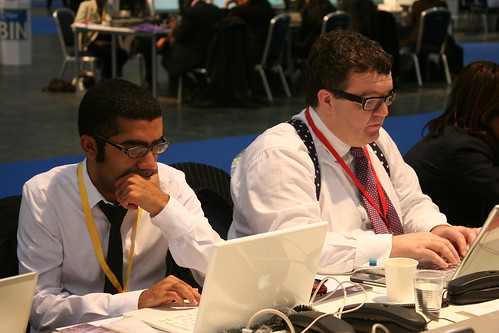
I’m just reading the very promising report on the future of public services written as part of the University of Birmingham Policy Commissions. “When Tomorrow Comes” began life with this discussion on Big Society at the Conservative Party Conference last year.
Now published the work describes a world very close to my heart, active engaged citizens using their networks and communications skills to help shape or lead public policy and public services. It also, though, identifies qualities we will need from public servants:
Key new roles include: storyteller, communicating stories of how new worlds of local public support might be envisioned in the absence of existing blueprints; weaver, making creative use of exisiting resources to generate something new and useful for service users and citizens; architect, constructing coherent local systems of public support from the myriad of public, private, third sector and other resources; and navigator, guiding citizens and service users around the range of possibilities that migth be available in a system of Local Public Support.
First of all these are not new roles – they already exist to a certain degree. We spent the best part of a year working with neighbourhood managers in Birmingham helping them with the tools and the skills to be storytellers, weaver’s and navigators. We do the same with the citizens they work alongside, not least through social media surgeries. Likewise we’re working with the Wolverhampton Strategic Partnership to help them advance their wonderful community empowerment learning programme, which helps public servants and citizens work together to be better weaver’s architects and navigators. We do similar work with housing associations – who value the connecting and empowering skills in their staff
Appreciating these qualities can sometimes feel like a tricky message to get across. I remember a fascinating afternoon on The Hague with Tessy Britton and Maurice Specht. Both of us were talking to senior officials in central government in Holland about the impact of potent networks, self organising citizens and militant optimism on how will will govern ourselves. “What should we do?”- they asked. Learn to get out of the way, perhaps offer very lightweight support I urged them. Invest in the connectors was Tessy’s advice. People like the initiative brokers we met later that week.
To late?
My fear is that these skills are not being truly valued now. The neighbourhood manager role has gone in Birmingham and in the process the council has lost some remarkable people who’s passion for connecting ideas and people made government much more accessible and I’m certain more efficient.
Other’s who are connected nationally regionally and locally are being pushed back into more definable jobs, turned back into box tickers in pre-ordained processes. These latter jobs are the ones we can eventually automate and prescribe. So as funding dries up for the jobs best done by connectors – please local government management, make sure you find ways of keeping them in fruitful work and onside – because you will be needing them.

